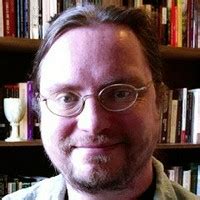Top 28 Quotes & Sayings by Brendan Myers
Explore popular quotes and sayings by a Canadian philosopher Brendan Myers.
Last updated on December 3, 2024.
We immerse ourselves in escapist mass entertainment, such as 'reality T.V.' programs. We support fanatical politicians and preachers. Our politicians, in turn, support dictators and tyrants in other countries, all in the name of 'security' and 'stability'. And we arm ourselves to the teeth, and pray to God to be saved.
Homer, Hesiod, Pythagoras, Plato, and Cicero, just to name a few, all lived in pagan societies. Some of the greatest political and military leaders of all time, such as Alexander the Great, Pericles of Athens, Hannibal of Carthage, and Julius Caesar of Rome, were all pagans, or else living in a pagan society.
For those who struggle with anti-pagan prejudices and stereotypes, Humanist Paganism might be a powerful educational tool. It can show that a pagan can be a sophisticated, cosmopolitan, and enlightened person, and that a pagan culture can be artistically vibrant, environmentally conscious, intellectually stimulating, and socially just.
Complex astronomical instruments like the Antikythera Mechanism and the Nebra Sky Disk were made by Pagans. Our Pagan intellectual heritage includes poets and scientists and literary intellectuals of every kind, especially including those who wrote some of the most important and influential books in all of Western history.

























